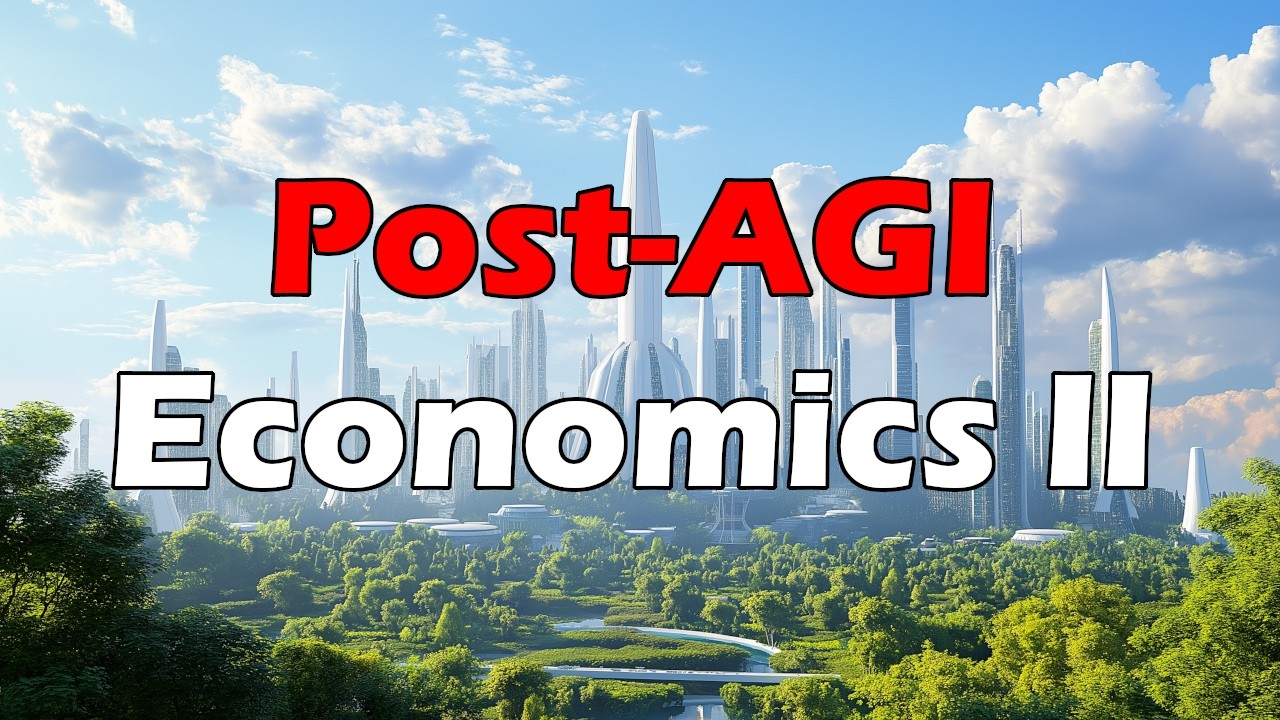In “Post-AGI Economics II,” the speaker argues for a new economic model to replace neoliberalism, emphasizing the need for collective ownership and decentralized governance in a post-labor economy driven by AI and automation. They critique Universal Basic Income as insufficient and advocate for a “meaning economy” that fosters human connection and purpose, calling for a comprehensive rethinking of economic and political structures.
In the video “Post-AGI Economics II,” the speaker revisits the concept of post-labor economics, building on previous discussions about the implications of artificial intelligence (AI) and automation on the economy. The speaker emphasizes the need for a new economic model to replace the current neoliberal framework, which has dominated global policy for over 40 years. Neoliberalism, characterized by free-market capitalism, privatization, and individual responsibility, has led to increased inequality and a concentration of power among corporations and the wealthy. The speaker argues that as AI and automation become more efficient than human labor, a shift towards a post-labor economy is inevitable.
The speaker outlines four core observations that underpin post-labor economics: the devaluation of labor, the failure of neoliberalism, the need for a new social contract, and the emergence of collective ownership. As automation expands, the demand for human labor diminishes, leading to lower wages and fewer job opportunities. This shift necessitates a rethinking of the social contract, which currently relies on private ownership and labor rights. The speaker advocates for a model that favors collective ownership, enabled by technologies such as blockchain and decentralized autonomous organizations (DAOs), to ensure that resources are managed for the benefit of the community rather than for profit.
The video also discusses the importance of decentralization and transparent governance in the new economic paradigm. The speaker argues that the current political system is opaque and susceptible to corruption, with power concentrated in the hands of a few. By promoting decentralization, decision-making can be distributed more equitably among communities, allowing for greater participation and accountability. The speaker suggests that new technologies can facilitate this shift, enabling more democratic forms of governance that reflect the will of the people.
Additionally, the speaker critiques the concept of Universal Basic Income (UBI) as a standalone solution to the challenges posed by automation. While UBI could provide a safety net, it may also lead to increased dependence on government support, reducing individuals’ economic agency. Instead, the speaker emphasizes the importance of fostering a “meaning economy,” where individuals can find purpose and value in their work, even in a landscape dominated by automation. This approach encourages participation in economic systems that prioritize human connection and empathy.
In conclusion, the speaker calls for a comprehensive rethinking of economic and political structures in light of the impending post-labor future. By embracing collective ownership, decentralization, transparent governance, and consensus-based decision-making, society can create a more equitable and sustainable economic model. The speaker invites dialogue with economists and advocates for a gradual transition to these new frameworks, emphasizing the need for careful consideration of privacy and security concerns as society navigates this transformative period.
